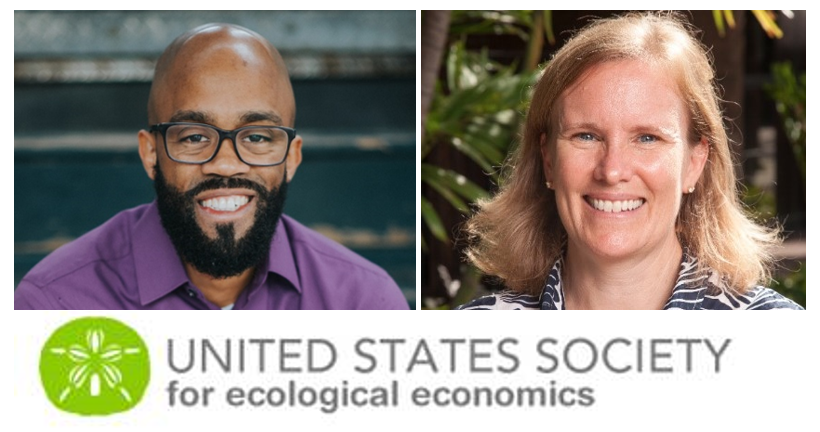
2021 Webinar Series: The Post-Covid Economy: Centering Justice, Sustaining Ecosystems
The USSEE is excited to announce the launch of our 2021 Webinar Series: The Post-Covid Economy: Centering Justice, Sustaining Ecosystems.
Our first event in this series is titled Fundamentals of Ecological Economics in Today’s World, and will be held Thursday January 28th at 3pm EST by speakers Phil Warsaw and Regina Ostergaard-Klem.
Follow the Eventbrite Link here for more details, and to register for this free event!
Abstract: This webinar will provide a primer on Ecological Economics, with a focus on the foundations of the discipline related to environmental justice, and sustaining ecosystems that are becoming even more apparent and relevant in today’s world. The COVID-19 pandemic and resulting fallout have shone light on the ongoing disparities economic, health, social and ecological crises, their unevenness among multiple social lines, and the inability of a perpetual growth economy in remediating these crises. This inadequacy calls for the biophysical limits of the planet while centering equity in economic systems, which is at the core of Ecological Economics. This seminar will both cover the fundamentals of Ecological Economics and outline what an ecological economic response to COVID-19 might look like. The event will consist of approximately 40 minutes of presentation, followed by 20 minutes of open discussion.
Speaker Bios:
Dr. Ostergaard-Klem is an associate professor of environmental science in the College of Natural and Computational Sciences at Hawai’i Pacific University. Her research focuses on the design, development, and roll out of the Genuine Progress Indicator for the state of Hawaii as a supplemental indicator to gross state product and exploring the role of ecological economics in developing sustainability competencies in undergraduate and graduate students.
Dr. Warsaw is an Assistant Professor of Ecological Economics and Environmental Justice in the Department of Community Sustainability at Michigan State University. Broadly, his research takes an interdisciplinary approach to questions of environmental justice, economic development, and sustainability, combining approaches from economics and the other social sciences, such as the use of critical theory.